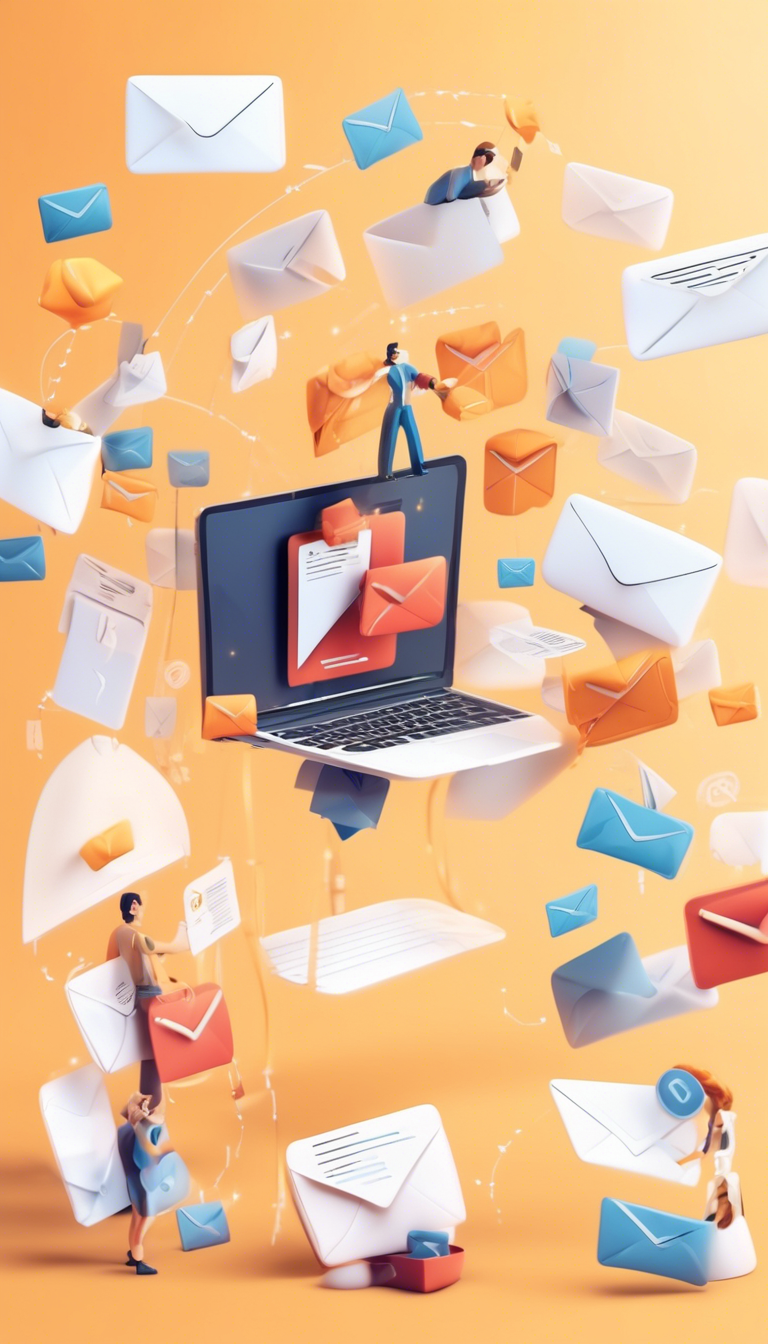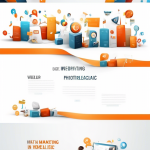Effective Email Automation Examples for Small Businesses
Email automation plays a vital role for small businesses looking to streamline their marketing efforts, save time, and connect with customers effectively. By automating your email campaigns, you can nurture leads, keep customers engaged, and improve overall efficiency. Here are several practical examples of how email automation can benefit your small business.
Welcome Series for New Subscribers
When someone subscribes to your newsletter or joins your mailing list, they should feel welcomed immediately. A well-structured welcome series can establish a strong relationship right from the start. This series typically includes:
- Thank You Email: Send an immediate thank you message once someone subscribes.
- Brand Introduction: Follow up with an email that introduces your brand’s story, mission, and values.
- Incentives: Include a special offer or discount to encourage their first purchase.
Abandoned Cart Emails
One of the most significant opportunities for increasing sales is through abandoned cart emails. If a customer adds items to their cart but doesn’t complete the purchase, a series of reminders can help recover lost sales. Here’s what to include in these emails:
- Reminder Email: Send a gentle nudge about the items left in the cart.
- Incentive Follow-Up: If they haven’t converted after a couple of reminders, offer a discount or free shipping.
- Last Call: Send a final reminder before the items go out of stock or the offer expires.
Post-Purchase Follow-Ups
Once a customer makes a purchase, engaging with them is crucial for building loyalty. Automating post-purchase emails helps keep customers connected to your brand. Consider this sequence:
- Thank You Message: Express your gratitude for their purchase.
- Feedback Request: Encourage customers to leave a review or feedback about their experience.
- Related Product Suggestions: Share additional products that complement their purchase.
Seasonal Campaigns
Seasonal events are excellent opportunities for small businesses to maximize engagement. You can automate your email campaigns around holidays, back-to-school, or other significant events. Here are some ideas:
- Holiday Promotions: Send out a series of enticing offers leading up to a holiday.
- Countdown Emails: Create excitement with countdowns for sales events.
- Themed Content: Share tips or guides relevant to the season, along with promotional offers.
Regular Newsletters
Keeping your audience informed is key to maintaining engagement. Regular newsletters can be automated to deliver updates and valuable content without needing daily attention. You can include:
- Company News: Share updates about your business, like team highlights, new product launches, or achievements.
- Educational Content: Offer articles, guides, and resources that add value to your audience.
- Special Offers: Promote exclusive deals or events to your email subscribers.
Customer Segmentation Emails
Understanding your customers’ behavior is essential for effective communication. Automating emails based on customer segments can enhance personalization. Consider the following strategies:
Join our amazing AI and Automation Community
- Behavior-Based Segments: Create segments based on website activity, purchase history, or engagement levels.
- Personalized Recommendations: Use segmentation data to deliver tailored product suggestions.
- Targeted Promotions: Send special offers that resonate with specific groups, enhancing conversion rates.
Re-engagement Campaigns
If customers become inactive, a re-engagement campaign can help win them back. Automate these reminders to minimize manual outreach. Here’s a simple approach:
- Win-Back Emails: Reach out to customers who haven’t interacted in a while with a personalized message.
- Feedback Request: Ask why they haven’t engaged and if there’s something you can improve.
- Exclusive Offers: Provide a special incentive to encourage them to return.
Email automation is a powerful tool that can significantly enhance your small business’s marketing strategy. By implementing these effective email automation examples, you can build better customer relationships, increase sales, and maintain consistent engagement. Tailor each approach to fit your brand and watch as automation helps you grow and thrive in today’s competitive market.
The Impact of Email Automation on Customer Engagement Strategies
Email automation has transformed the way businesses engage with their customers. By implementing effective strategies, companies can enhance their communication, foster customer loyalty, and ultimately drive sales. The ability to automate emails enables businesses to deliver timely and relevant messages that resonate with their audience. With the right email automation examples in mind, you can significantly improve your customer engagement strategies.
Understanding the Basics of Email Automation
Email automation allows you to send messages to your customers without manual intervention. You can set up emails to occur at specific times or triggered by particular actions. For instance, when a customer signs up for your newsletter, an automated welcome email can be sent immediately. This not only enhances the customer experience but also keeps your brand at the forefront of their minds.
Personalized Welcome Emails
One of the best email automation examples is a personalized welcome email. After a customer subscribes, you can automate a series of emails tailored to their interests. This approach will:
- Introduce your brand and values.
- Educate them about your products or services.
- Encourage them to explore your website or blog.
By crafting a warm and engaging welcome series, you not only make your new subscribers feel valued but also lay the groundwork for a strong relationship.
Targeted Email Campaigns
Another effective strategy is to use email segmentation based on customer behavior. By analyzing their actions, such as recent purchases or browsing history, you can automate emails that address their specific needs. Here’s how targeted email campaigns can impact customer engagement:
Join our amazing AI and Automation Community
- Re-engagement: Send automated reminder emails to customers who haven’t engaged with your brand in a while.
- Product recommendations: Based on past purchases, auto-generate suggestions that encourage repeat purchases.
- Special offers: Automate limited-time discounts for specific customer groups, making them feel exclusive.
When customers receive relevant information, they are more likely to engage with your brand again.
Abandoned Cart Emails
Abandoned cart emails are powerful tools for recovering lost sales. After a customer adds items to their cart but leaves without completing the purchase, an automated email reminder can prompt them to return. Here’s how this type of automation can enhance customer engagement:
- Gentle reminders serve as prompts to complete the transaction.
- Offer incentives like discounts or free shipping, creating urgency.
- Showcase social proof, like customer reviews, to sway their decision.
This targeted approach to recovering abandoned carts can lead to significant revenue increases.
Feedback and Survey Emails
Collecting feedback is essential for improving user experience. By automating follow-up emails after a purchase, you can gather valuable insights from your customers. Consider this strategy to boost engagement:
- Send personalized emails thanking customers for their purchase, along with a request for their feedback.
- Create quick and easy surveys to gather opinions on their shopping experience.
- Incentivize responses with discounts or freebies on their next purchase.
When customers feel heard, they are more likely to remain loyal to your brand.
Lifecycle Emails
Lifecycle emails are another effective type of email automation. These emails cater to customers based on their journey with your brand and can include:
Join our amazing AI and Automation Community
- Birthday emails: Send automated happy birthday messages with exclusive offers.
- Renewal emails: Notify customers about subscription renewals well in advance.
- Milestone emails: Celebrate significant anniversaries with personalized messages.
By engaging customers at different touchpoints, you create a meaningful connection that fosters loyalty.
Effective email automation can radically improve your customer engagement strategies. By utilizing personalized messages, targeted campaigns, and feedback requests, you create a tailored experience that resonates with your audience. Remember, engagement is all about the quality of communication. By implementing these email automation examples, you can enhance your customer relationships and drive continued success for your business.
Conclusion
Email automation can be a game changer for small businesses looking to enhance their customer engagement strategies. By implementing effective email automation examples, such as welcome sequences, abandoned cart reminders, and personalized follow-ups, businesses can create a more streamlined and efficient communication process. These automated systems don’t just save time; they also foster stronger relationships with customers by delivering relevant content at the right moment.
The impact of these automated approaches is significant. Customers appreciate timely and personalized communication, which can lead to higher engagement rates and better conversion opportunities. When businesses utilize tools to automate their emails, they can maintain consistency in outreach while also tailoring messages to individual preferences. This dual benefit maximizes the chances of resonating with the audience and turning casual readers into loyal customers.
As small business owners explore the potential of email automation, it’s essential to regularly assess the effectiveness of their strategies. By analyzing open rates, click-through rates, and overall customer responses, businesses can adapt their email campaigns to align better with their audience’s evolving needs.
Ultimately, integrating email automation tools effectively not only enhances productivity but also creates an impactful customer experience. As they embrace these strategies, small businesses can position themselves for long-term success by ensuring that their communication is not only efficient but also meaningful. With the right approach, email automation can transform the way you engage with customers and build lasting relationships.


